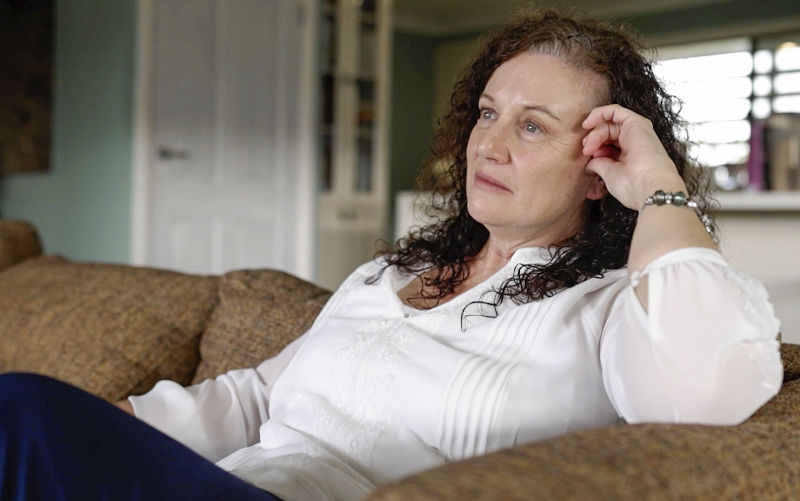Grossly inadequate compensation offered to Kathleen Folbigg
August 13, 2025
On 5 June 2023, Kathleen Folbigg was released from prison following 20 years of imprisonment after having been wrongfully convicted of killing her four children over a 10-year period.
The Bathurst Judicial Inquiry concluded the deaths were not killings, and should properly have been regarded as natural. The NSW Court of Criminal Appeal quashed her convictions and entered verdicts of acquittal. This means Folbigg no longer has a record of killing her children, and she has the presumption of innocence returned to her.
With the time it has taken for the NSW Government to act on the obvious need to compensate her for the harms done at the hands of the state, it comes as no surprise that the initial offer is, in the circumstances, paltry. An incomplete list of those harms include:
- Twenty years of wrongful imprisonment, with all of the potential long-term implications for her physical and mental well-being;
- Twenty years of being wrongfully labelled Australia’s “worst female serial killer”;
- Twenty years of loss of income, including loss of superannuation; and
- Twenty years of loss of opportunity to live a healthy and happy productive life.
In addition to the harms done, there are other issues for which compensation should be considered including on-going stigmatisation, the legal expenses of pursuing the overturn of her convictions, and the expenses involved in resuming life in the community (housing, counselling, finding employment etc).
As we wrote in 2023, “in determining the quantum of compensation, the dominant principle should be to restore the person (as far as is possible) to the status the person enjoyed before the incarceration, in the same manner by which civil claims for personal injury are settled. To achieve such restoration, compensation would need to be paid for non-financial losses (loss of liberty, loss of reputation and loss of family or personal relationships) as well as for financial losses (loss of earnings including future earnings and loss of property or other financial losses)”.
We have also noted that ‘wrongfully convicted people infrequently receive compensation in Australia, despite our obligation as a signatory to the 1980 International Covenant on Civil and Political Rights. Article 14(6) of the ICCPR provides: “When a person has by a final decision been convicted of a criminal offence and when subsequently his conviction has been reversed or he has been pardoned on the ground that a new or newly discovered fact shows conclusively that there has been a miscarriage of justice, the person who has suffered punishment as a result of such conviction shall be compensated according to law, unless it is proved that the non-disclosure of the unknown fact in time is wholly or partly attributable to him.” In becoming a signatory, Australia recorded the following reservation; viz. “provision of compensation for miscarriage of justice in the circumstances contemplated in paragraph 6 of article 14 may be by administrative procedures rather than pursuant to specific legal provision”. In the years since, these “administrative procedures” have never been defined and so (with the exception of the ACT) wrongly convicted Australians continue to depend for compensation on an arbitrary mechanism of ex-gratia payments.
There are local and international precedents that should have guided the parsimonious NSW Government. For example, in the case of his wrongful conviction for murder in 1995, for which he spent 19 years in prison, David Eastman was offered an ex-gratia payment of $3 million by the ACT Government. He pursued a claim under the ACT Human Rights Act and in 2019 was awarded $7.02 million. In 1992, Lindy and Michael Chamberlain were paid $1.7 million compensation for their wrongful convictions and Lindy Chamberlain’s three years of wrongful imprisonment. In 2010 in Victoria, Farah Jama was paid $525,000 following his wrongful conviction for rape (he had never met nor been within miles of the woman involved) and 12 months of wrongful imprisonment.
There is also the compensation system that New Zealand has had in place for several years for those wrongfully convicted, which, by contrast with NSW, seems almost exemplary. Currently, this provides for $150,000 per year for each year of imprisonment; up to $100,000 per year for loss of livelihood during the period of imprisonment; the reasonable costs incurred in obtaining a pardon or having the wrongful conviction set aside; the reasonable costs incurred in pursuing the application for compensation; a transition allowance of up to $50,000 to aid reintegration into society and recognise loss of future earning capacity; and up to $250,000 to compensate for any other significant pecuniary losses. In addition, the NZ scheme offers the possibility of a public statement of the applicant’s innocence and a public apology by the government. The scheme takes decisions out of the hands of the minister of justice as decisions are based on advice from an independent senior counsel.
In addition to all the harms done via wrongful incarceration, it is useful to consider separately the harm done to Folbigg’s reputation. How can the current offer of $2 million compare with the $2.9 million outcome of a 2019 defamation action by actor, Geoffrey Rush? Surely, being wrongly relegated by NSW to national and international pariah status through absolutely no fault of her own should also be a key element of Kathleen Folbigg’s compensation. In our view, $2 million for being wrongly convicted of killing her four children and then wrongly spending 20 years in prison simply does not cut it.
The views expressed in this article may or may not reflect those of Pearls and Irritations.



